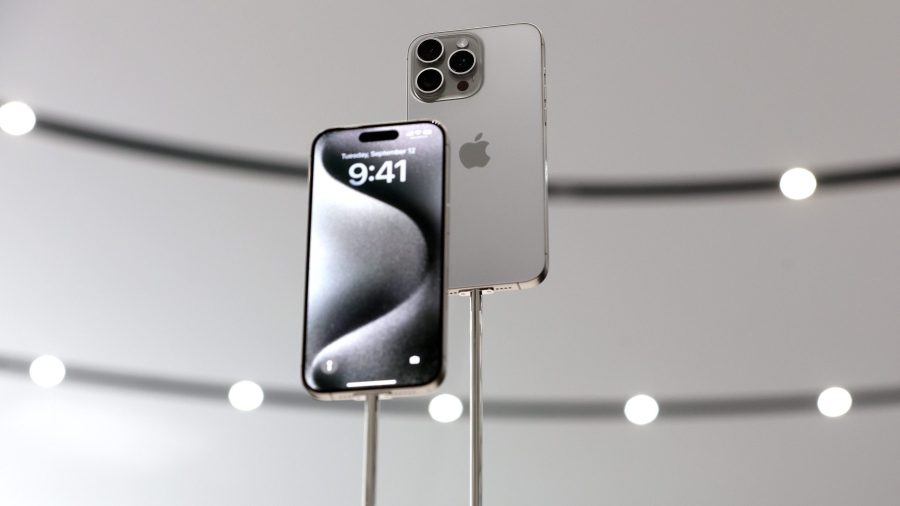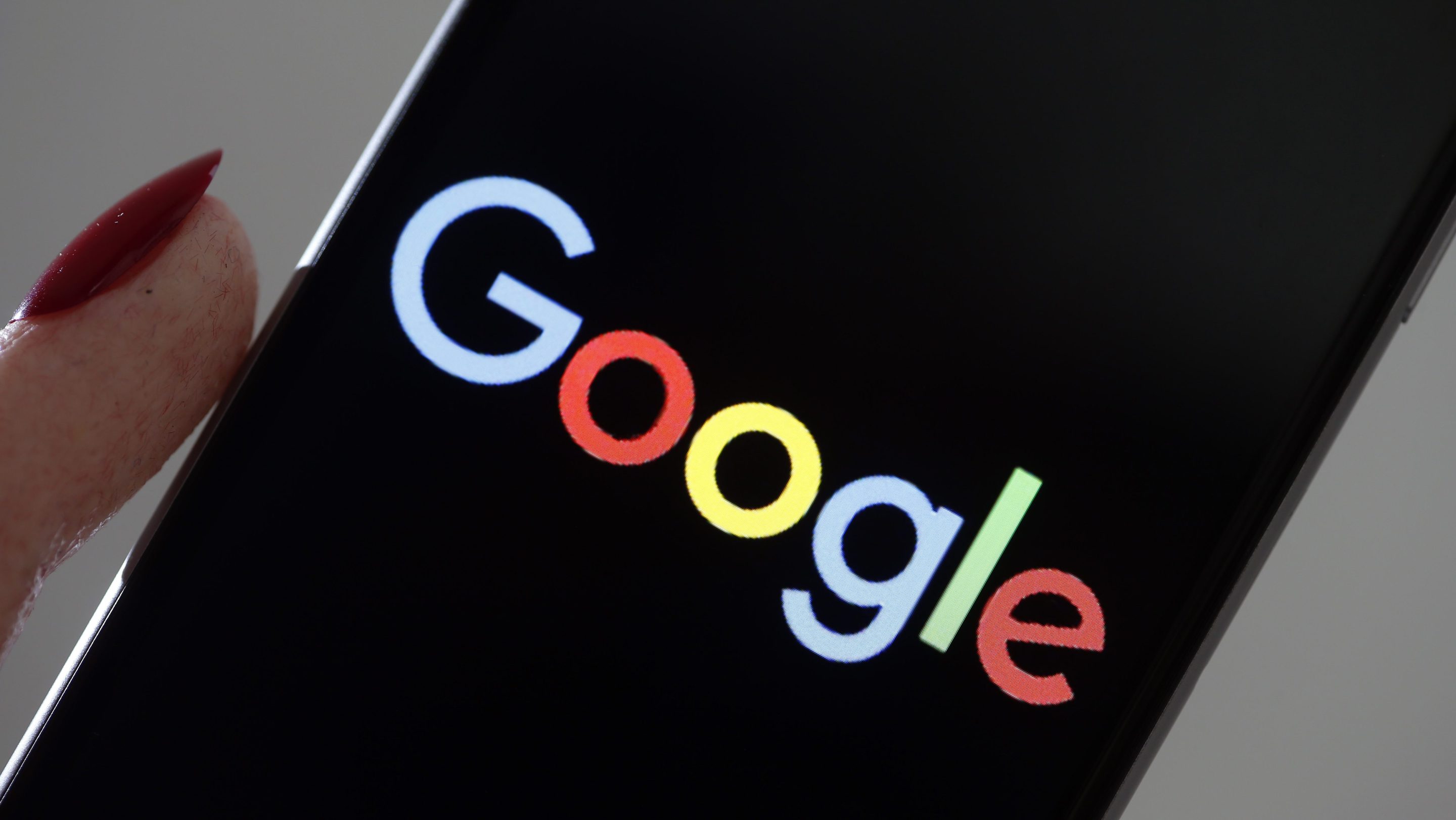Have smartphones peaked?

There was a time when the unveiling of the next-generation Apple iPhone was a very big deal.
Today, there are still plenty of fans keeping tabs on the latest releases from Apple and competitors like Samsung and Google. But if you didn’t hear much about Apple’s hardware showcase in Cupertino, California, last week, it wasn’t just you.
Marketplace’s Lily Jamali spoke to Lauren Goode, senior writer at Wired and the co-host of Wired’s “Gadget Lab” and “Have a Nice Future” podcasts, about the event and what it revealed about the state of smartphones.
The following is an edited transcript of their conversation.
Lauren Goode: This year’s iPhone event felt a little bit subdued. I’ve covered a lot of Apple events over the years, both on the hardware and software side, and to me, it really feels like the center of gravity is starting to shift more towards those software events, like the Worldwide Developers Conference or Google I/O. Also, I think with all the emphasis that we’re seeing on artificial intelligence in technology right now, that’s where some of the really exciting development has been happening, whereas on the hardware side, people have started to expect slightly more iterative updates for the iPhone, the Apple Watch, the iPad. That’s not to say that these were disappointing in any way, but it just felt like “another September, another new iPhone.” We’ve come to expect this. But what can the thing do? And how does it fit into our lives? Those are the questions that I hear people asking these days.
Lily Jamali: How did the Apple event last week compare with competitor events like Samsung or Google?
Goode: This is probably oversimplifying it a little bit, but I think if I had to describe what Samsung is leaning into at this point in time, based on their July event, it’s really foldables. Foldables were a bright spot in the smartphone market last year, despite seeing dips globally in smartphone sales. Foldables are a category that is growing. They’re still a little bit gimmicky. They’re not for everyone, but it’s some kind of pop of innovation that’s happening in phones right now, when the rest of the market is pretty static in some ways.
Google tends to lean into the fact that it is primarily a software company and that they have been building AI systems for many years now. So even though Google doesn’t sell nearly as many Pixel phones as Apple sells iPhones or Samsung sells its phones around the globe, Google can really lean on that AI and its computational photography to say, hey, we’re using software to make these photos that much better. Those I think are the different ways that the different phone manufacturers have traditionally differentiated their phones. And we’re seeing them do that again this fall.
Jamali: Have we reached peak smartphone?
Goode: It’s a good question. The holiday quarter of 2022 was a real wake-up call for people in terms of what might be going on in phones because that was the quarter that smartphone shipments declined significantly from the holiday quarter the year prior. People started to ask what’s going on in the smartphone market, and I think that there are a lot of factors here. One, I think that the market is generally saturated. In various places around the world, the majority of adults have a smartphone. I also think smartphones have gotten really good, even at the midrange. You could spend between 400 and 500 U.S. dollars and get a pretty darn good phone with a pretty good camera. Now that we’re seeing these iterative or incremental updates every year, I think people are thinking more critically about whether they actually need to upgrade and, in some instances, the answer might be no, I really don’t. So, I think that we’re definitely going to see more and more of these smartphone manufacturers leaning into AI as something that is going to be a differentiator or maybe appeal to people or convince them to upgrade. But I also think we’re going to go back to basics. People are going to be looking for a phone with the best battery life, or the most convenient phone, one that fits into my life, what’s durable and not going to break, what’s repairable, so that if it does break, I can get it repaired for not an exorbitant amount of money. I think people are being practical about phones right now. And I don’t think that’s necessarily a bad thing.
Jamali: It seems like there was a period where we were just being driven to buy new phones all the time, whether we wanted to or not. Who can forget when Apple throttled performance in these older iPhones? It feels like the companies themselves have shifted strategy a little bit.
Goode: We’ve definitely experienced this phase in smartphones, where there’s a combination of both planned obsolescence, which is where companies intentionally build features that are set to expire. You mentioned the famous Apple case of throttling battery life. This was a few generations ago at this point, but people always suspected something was up when their phone seemed to suddenly get worse just before a new one came out. So that planned obsolescence combined with accelerated launch cycles and knowing that manufacturers are working on these phones every 18 to 24 months and they’ve got that pipeline and every year there’s going to be a new version. Consumers, I think, got sucked into that for a while, and now we’re starting to take a step back and say, I really don’t need to upgrade all that frequently.
Jamali: Sales of smartphones across companies have been on the decline for a few years. How has Apple specifically been responding to that decline?
Goode: Apple has fared pretty well despite the decline in smartphone sales. But Apple has also really been growing its accessories unit, things like AirPods and Apple Watch, which keep people pretty locked into Apple’s ecosystem. It’s also been growing its services business with things like the app store, Apple TV+ and iCloud, all of those things. Once people start subscribing to services, not only is it recurring revenue for Apple, but it makes it that much harder to leave, and I think that’s exactly what Apple would like to see happen.
During our conversation, Lauren Goode mentioned some reporting she did for Wired’s 30th anniversary series in which she asked industry experts about the future of the smartphone. Specifically, what will the smartphone, and our use of it, look like 10 years from now? To find out, Goode spoke to Tony Fadell, the original designer and engineer of the iPod.
And, lest we forget, Goode also reminded us that smartphones are actually pretty amazing devices. Which is why so many of us are still hooked on them.
The future of this podcast starts with you.
Every day, the “Marketplace Tech” team demystifies the digital economy with stories that explore more than just Big Tech. We’re committed to covering topics that matter to you and the world around us, diving deep into how technology intersects with climate change, inequity, and disinformation.
As part of a nonprofit newsroom, we’re counting on listeners like you to keep this public service paywall-free and available to all.
Support “Marketplace Tech” in any amount today and become a partner in our mission.


















